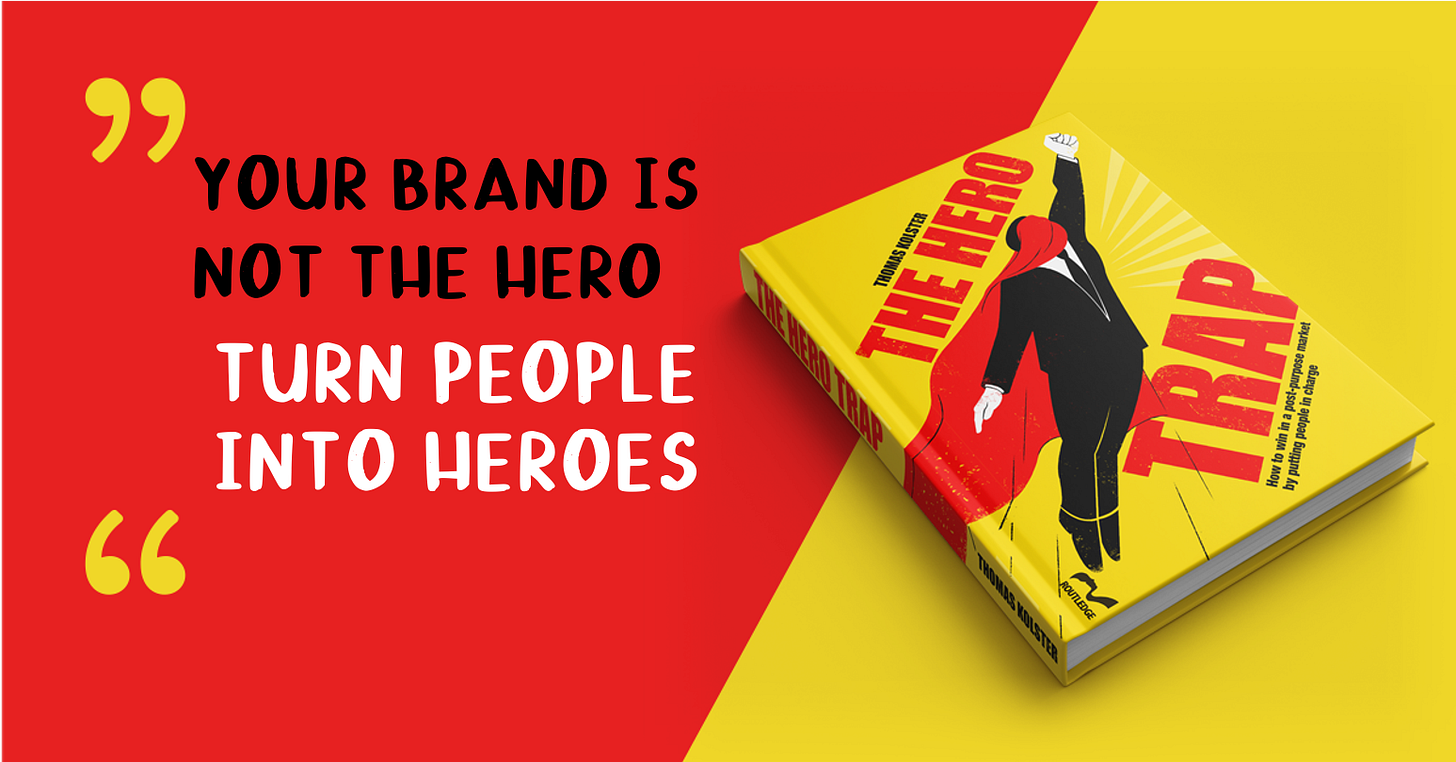Growth has had a pretty bad rap in the last few decades – mostly for good reason.
Unfettered growth – without any regard for environmental and social impact – has lead us to this critical moment in our collective future. As we face challenges with climate change, inequality and an economy hell bent on promoting wealth over well-being, profits over people.
Most of the social good and sustainable businesses we work with are trying to find ways to re-think and re-imagine our market and business practices to get back on a more sustainable and regenerative path.
But to do this requires growth of a different kind.
It means understanding that in order to transition to new energy, cleaner technology, better food & consumer products – we need to invest not just in the underlying processes and infrastructure to enable this change – but also invest in creating new brands and effective marketing that brings the rest of the world along with us on this journey. Quickly.
To achieve this requires us to work hard to reframe growth as a potential net positive.
I hope this newsletter can be a part of reclaiming Growth for Good. And to kick this off I wanted to talk about some of the biggest ‘growth’ challenges we face in our industry.
1. Your (Other) Mission Focus
Most charities, NGOs, sustainable organizations and start-ups have a really strong focus on providing better and more sustainable products and services - that deliver meaningful solutions for people & the planet.
It’s only natural therefore that the focus of these businesses - in terms of staffing, resources and effort - is on achieving these operational outcomes. Because of this, in many sustainable organizations it’s common to think of the customer as the recipient of this purposeful work, and the product as our solution that meets their needs.
But from a brand and marketing perspective – we need to flip the script for a moment. We also need to see the public, our donors and commercial partners as customers – and our product/services as delivering on their needs as well. Because without their funding, we can’t achieve the impact we want to make in the world.
That’s not always easy to reconcile given the way many sustainable organizations are staffed and run. But we desperately need to balance our operational imperative with the need to develop strong brands & effective marketing.
This is a complimentary mission to your cause-related focus. We can do even more good if we do great marketing.
2. Connecting Beyond the ‘Conscious Giver’
Many ethical & sustainable brands are driven by inspired founders, leaders and staff who are genuinely seeking better outcomes for people and the planet. They have a strong and passionate belief in change and this inspires investors, colleagues and partners alike in their vision.
And while this purpose is critically important, without a strong orientation to how the broader public and business community can participate, this can also create significant barriers to growth.
I enjoyed Thomas Kolster’s book The Hero Trap because it made many sustainable and purpose-driven organizations think more about who the hero of their story actually is. Re-focusing leadership back on the impact of their solutions, and on the role that stakeholders, partners and the public can play in achieving these outcomes.
It’s the same for product, brand and marketing development. We often have a very limited idea of who can contribute to buying from, or funding, our sustainable business. I call this the myth of the ‘conscious giver’. Where we limit our marketing to target only people and organizations that are already highly motivated to fund you, and are active in seeking out ways to get involved.
And yet with the global environmental and social challenges becoming more apparent to more people everywhere – we need to find a way to allow more access to participate in change. We assume that the right people know what we do, know what products & services we provide, understand the good that we do, and why they should contribute to us.
These assumptions massively limit the opportunity of Growth for Good.
I think this is sometimes the hardest thing for people working within sustainable business to remember. That not everyone – or every business – is as motivated, as excited or as passionate about certain issues as you are. Or understand as clearly what they can do to make a difference. And yet, they still want to find a way to help - if we let them.
We can get more far people and organizations involved in our good work – if we expand our potential revenue segments, broaden the types of growth opportunities & and are open to new potential partners to work with.
3. Marketing Meets Substance
The final marketing challenge is perhaps the most pressing.
It’s a common refrain I hear that if you’re putting so much effort into marketing your sustainable credentials – you’re probably doing it to make up for your lack of genuine impact.
We understand that for some people in the sustainable space, marketing can still feel like a bit of a dirty word. That it’s symptomatic of a business that over-exaggerates positive achievements – and minimizes negative outcomes. That it prioritizes style over substance.
This is an important issue for every business, so I think it’s wise to:
Acknowledge the Issue: Clearly there are some organizations, even competitors in our market, whose focus on marketing is not matched by the impact they actually claim to make. Greenwashing is an increasing challenge, but it does not mean that more focus on marketing = less effective organizations. Increasingly, greenwashing organizations are getting found out.
Understand Successful Brands Require Growth: We should also accept that the best brands in any existing or new category in sustainable competitive markets – are achieving broad market growth by creating strong brands and implementing short term/long term growth marketing. It is a pre-requisite to market success.
Embrace the Challenge: That means we must clearly define what we do, what our output and impact is, and have the data and proof points to back this up. We should never be afraid to talk about our sustainable gains & ambitions – as long as we authentically and transparently share where we are on this journey.
We must meet these challenges head on.
Your marketing should never be trying to project a false or inflated perception of success vs. the reality of your operations. Instead we aim to match your sustainable achievements with great marketing that inspires & drives business growth for further good.
Remember – we won’t make the significant change we need without making a bigger impact on the world. And you won’t be able to fund this level change without creating strong brands and great marketing.
So let’s get to it…
Rob Hall is Founder & CEO of Growth Asia.
Growth Asia works with social good & sustainable business across Asia to grow revenue & develop successful brands.







